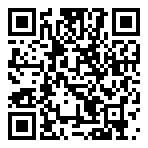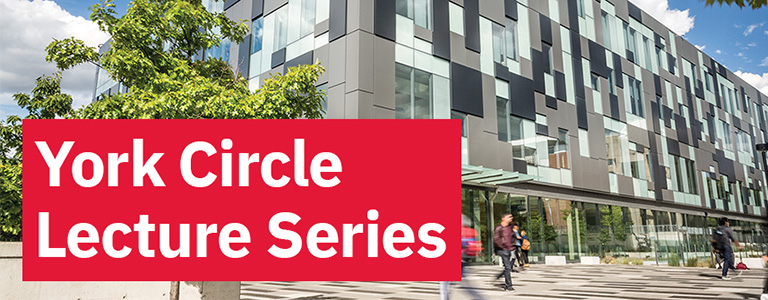
York Circle Lecture Series
York Circle is back. Dive into a variety of interesting topics with York’s leading faculty members. Join us at Keele Campus on Oct. 26 for an in-person discussion about personalized health care, artificial intelligence and more.
The York Circle Lecture Series is presented in collaboration with our York Circle Academic Chair, Jennifer Steeves (BA ’94, MA ’96, PhD ’01), Associate Vice-President Research (AVPR). Held four times a year, this event is open to our alumni community and friends.
Tickets are $5 and include coffee, light snacks and lunch.
Date: Saturday, Oct. 26
Time: 9 a.m.-1 p.m.
Location: Life Sciences Building, Keele Campus, York University
Agenda:
Registration, coffee and light snacks: 9-9:45 a.m.
Opening remarks: 9:45-10 a.m.
First session (concurrent – choose one): 10-11 a.m.
Break: 11-11:20 a.m.
Second session (concurrent – choose one): 11:20 a.m.-12:20 p.m.
Lunch: 12:30-1 p.m.
Event ends: 1 p.m.
The following speakers will be featured. Attendees will have the opportunity to choose one lecture from each session during the registration process.
First Sessions:
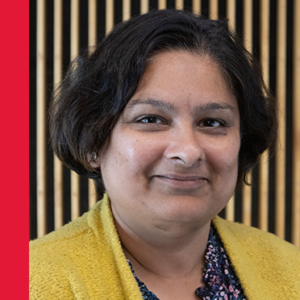
Shital Desai, Associate Professor, Department of Computational Arts, School of Arts, Media, Performance and Design, York University
Bridging the Digital Divide: Empowering people through sustainable technology
Marginalised populations such as older adults, people with dementia and immigrant communities experience accessibility challenges in their everyday life. This affects their ability to live independently and with autonomy and their quality of life. Technology can facilitate independence in everyday activities, social connection and engagement in the community. However, the adoption rates for technology is low. As public and financial services are increasingly digitised, the lack of technology adoption and accessibility will more isolate these communities. Social and Technological Systems (SaTS) Lab are developing solutions that are sustainable, using people-centred and system-centred approaches. We focus on design features that bring quality positive experiences with products – using slow design and slow interactions. This talk will describe our approach through example projects in the lab.
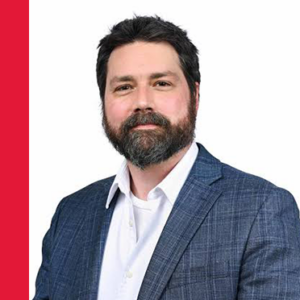
Dr. Robert W. Gehl, Associate Professor, Department of Communication & Media Studies, Faculty of Liberal Arts & Professional Studies
Fleeing Facebook and Exiting X: How activists show the path away from corporate social media
The purchase of Twitter by Elon Musk in 2022, coupled with Meta’s blocking of Canadian news sites, has prompted people in Canada to consider their social media options. Social media has now fragmented, with a small but growing population of people turning to non-corporate, alternative social media, such as Mastodon and the fediverse. This talk will discuss how non-corporate, alternative social media provide Canadians not just with a path away from Facebook or X, but also provide a new way to engage in online democracy.
Second Sessions:

Laleh Seyyed-Kalantari, Assistant Professor, Department of Electrical Engineering and Computer Science, Lassonde School of Engineering
Fair Generative AI in the Era of Foundation Models
This talk will explore recent advances in generative AI and foundation models in the context of AI in drug discovery and the application of AI in medical imaging. We explore these topics with AI fairness lens.
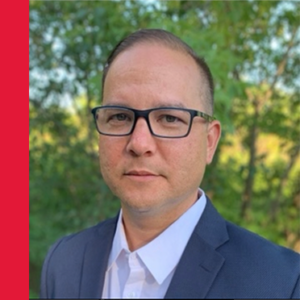
Dr. Jeremy Green, Assistant Professor, Department of Humanities, Faculty of Liberal Arts & Professional Studies
Á:re Shonathón:te Raonahronkhá:tshera Their Language is Heard Again: Exploring Indigenous language revitalization
Indigenous language revitalization is an emerging, multi-disciplinary field of study. In practice, Indigenous language revitalization is one essential component Indigenous nations, people, families and communities are using to re-establish self-determination and overcome the impacts of colonization reclaiming Indigenous identities and ways of living. Grounded in his research and life experiences, Tehota’kerá:ton Dr. Jeremy Green will share some of the major developments and achievements in Indigenous language revitalization from the 1970’s to the present day. Dr. Green will highlight the ways that each Indigenous language-in-culture-at-place holds the key to its own revitalization and ways that non-Indigenous persons can support Indigenous language revitalization.
